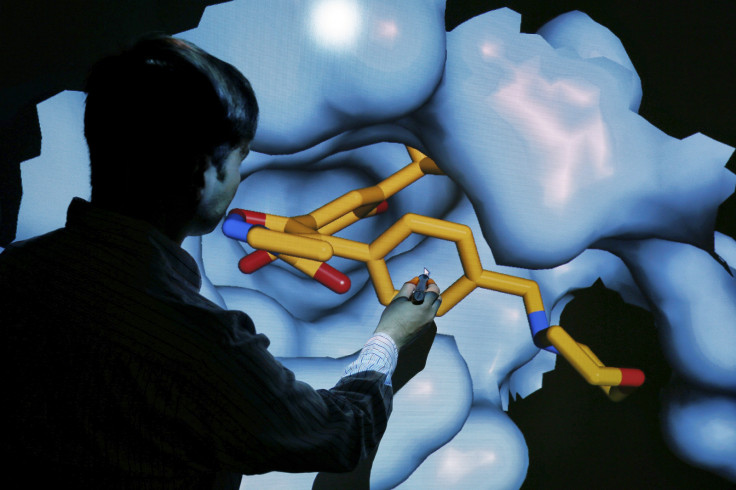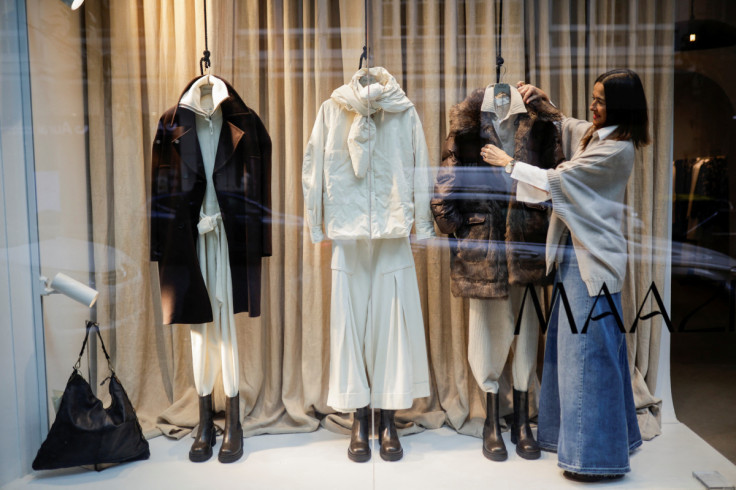Researchers train artificial intelligence to help detect breast cancer
With the support of AI detection, there will be improvements in the accuracy of medical diagnostics as well as earlier breast cancer detection.

Researchers have developed an artificial intelligence (AI) system that may help doctors detect cancer.
A team at Cardiff University, working alongside radiologists in NHS hospitals across England and Wales, managed to program AI to record the eye movement of a radiologist reading medical images. This data is then fed into the system to learn the gaze of a radiologist.
"This method is aimed at supporting radiologists' decision-making," according to Hantao Liu, of Cardiff University.
"After training, the system will be able to identify on a scan the regions where radiologists are most likely to look when preparing a diagnosis," explained Liu, a reader in computer science and informatics.
It is hoped that with the support of AI detection, there will be improvements in the accuracy of medical diagnostics as well as the potential for earlier breast cancer detection.
Judi Rhys, chief executive of cancer charity Tenovus, acknowledged AI had "something of a bad name", but welcomed the research.
Rhys said: "It's not about replacing the radiologists but it is about making them able to be much more responsive."
"By pointing out particularly worrying scans, people who are more likely to have cancer can be perhaps accelerated through the system," the chief executive added.
The use of AI technology in diagnosis and treatment across the NHS is becoming increasingly frequent. Last month, the UK government announced £21 million will be invested in AI developments across the NHS.
The funding, which will be made fully available by the end of 2023, will allow NHS Trusts to accelerate the deployment of the most promising AI tools across hospitals, to help treat patients this coming winter.
The integration of new technology will help diagnose patients more quickly for conditions such as cancers, strokes, and heart conditions, by utilising AI imaging and decision support tools.
Discussing AI's application to breast cancer diagnosis, Rhys described how "remarkably accurate" the technology is.
"The other thing about artificial intelligence is it doesn't need a break. It can get through a phenomenal number of scans and support the radiologists therefore to tackle the 'sticky' ones," she explained.
In recent months, The NHS has been increasingly stretched for funding, resources, and staff, a situation exacerbated by the impact of the COVID-19 global health crisis.
Before the pandemic in February 2020, there were already 4.43 million people on a waiting list for care.
At the beginning of the pandemic, the combination of suspension of non-urgent services and changes to individuals' behaviour meant that the number of people joining the waiting list initially dropped.
However, this has since been rising – and despite some improvements earlier in the year, waiting times remain far higher than pre-COVID-19.
The latest figures for April 2023 show that around 7.42 million people waiting for treatment, a slight increase on the previous month; nearly 3.09 million of these patients waiting over 18 weeks, and around 371,000 of these patients waiting over a year for treatment – which is around 292 times as many as in March 2019, before the pandemic began.
This worrying backlog has coincided with a national cost-of-living crisis, putting further strain on the national health service.
In radiology alone, there is a 30 per cent shortage of consultants across the UK. So for the health service, the introduction of AI support can't come quickly enough.
And this latest development comes just days after a cross-national research partnership between the University of Toronto's Xilin Liu and Andrew G. Richardson of the University of Pennsylvania helped develop a new generation of electronic devices that can help investigate sleep modulation.
As chronic sleep issues continue to afflict millions worldwide, researchers have been tirelessly exploring innovative solutions to address these problems, and the integration of AI with neuromodulation appears to be a promising pathway towards better sleep health.
Advanced AI algorithms can collect and analyse vast amounts of sleep-related data from various sources, including wearable devices, smartphones and home monitoring systems.
These smart algorithms can detect patterns and anomalies in sleep patterns, aiding in the accurate diagnosis of sleep disorders.

As well as healthcare, AI has been touted to transform the education and hospitality industries.
Since the technology exploded into mainstream news with the creation of ChatGPT in November 2022, it has developed rapidly as industries race to develop their own versions of the software and integrate it into their practices.
Speaking at London Tech Week last month, Prime Minister Rishi Sunak said AI could be used to provide "personalised learning" to children at school, as well as reduce teachers' workloads by assisting with lesson planning and marking.
And in hospitality, AI is already being used in customer service and online retail. A report by investment bank Goldman Sachs suggested AI could replace the equivalent of 300 million full-time jobs.
By automating repetitive and time-consuming tasks, AI can free up staff time for more important tasks. This can result in increased efficiency and productivity for businesses.
As for the NHS, Cancer charity Tenovus has called the potential of this AI system in diagnosing cancers early a "phenomenal" development.
In the years ahead, the new system will undoubtedly have a vital role to play in the fight against diseases such as cancer.
© Copyright IBTimes 2025. All rights reserved.






















